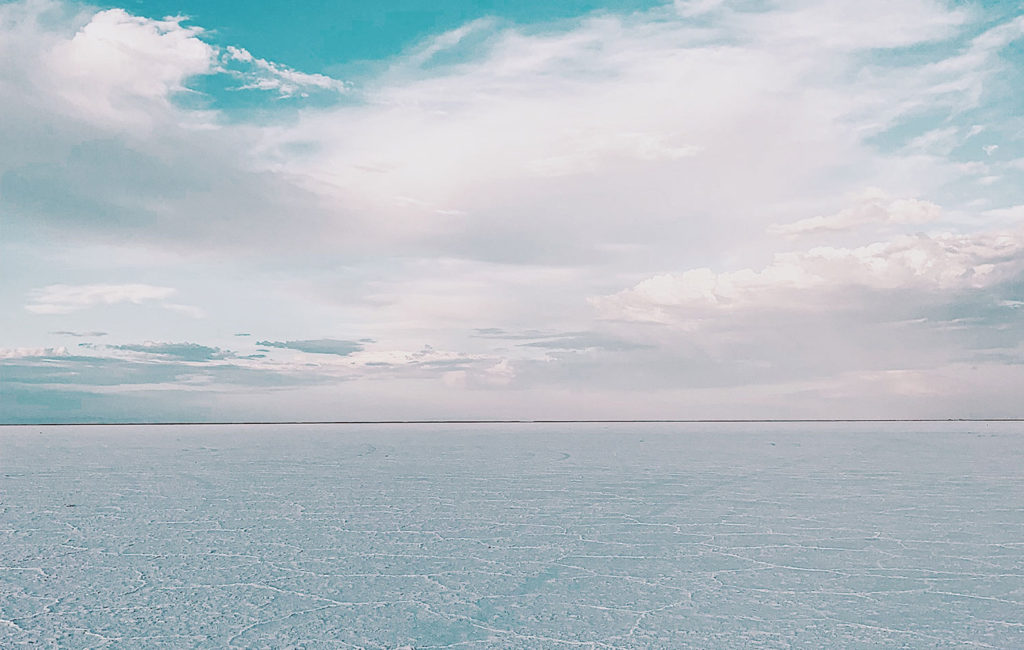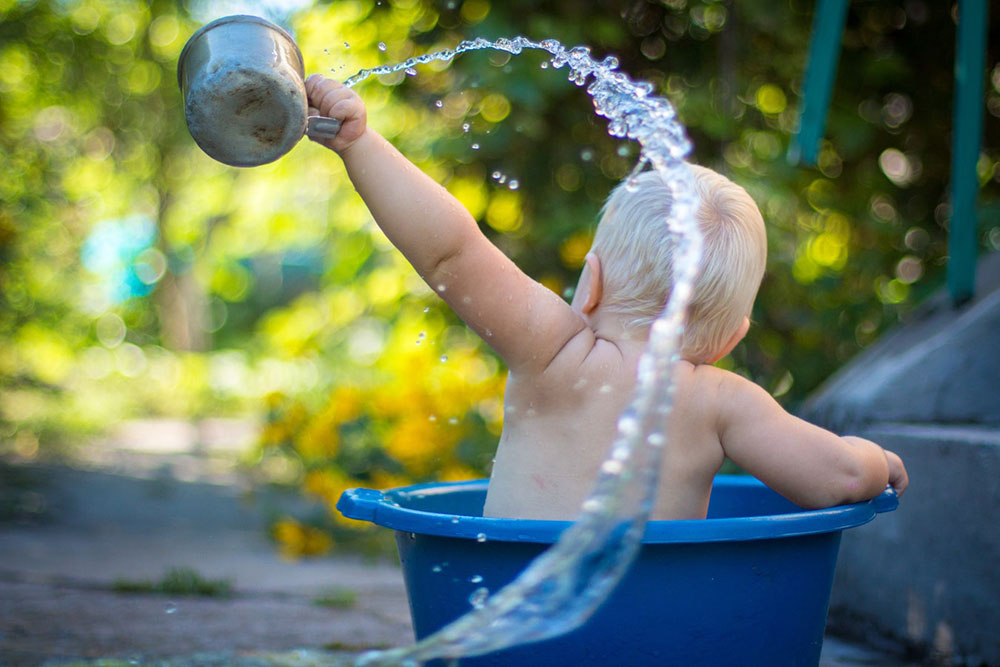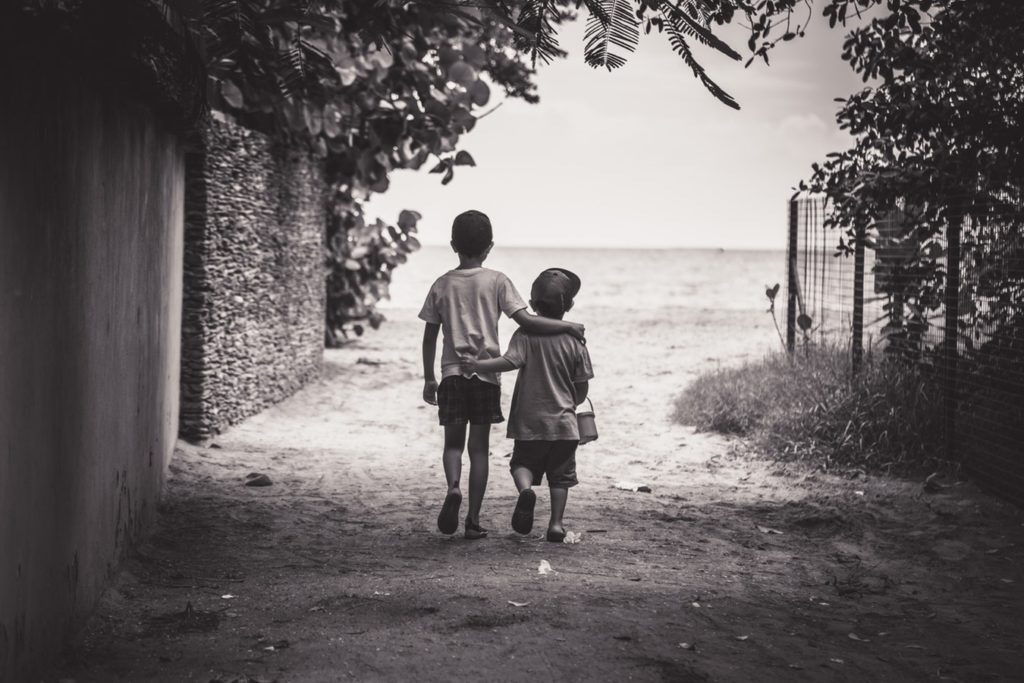Marianne gave a sermon on September 26, 2021 titled “On plucking out your eye and the kingdom of God.”
The Rev. Canon Marianne Wells Borg
Trinity Episcopal Church, Bend, Oregon
Mark 9:38-50
9:38 John said to him, “Teacher, we saw someone casting out demons in your name, and we tried to stop him, because he was not following us.”
9:39 But Jesus said, “Do not stop him; for no one who does a deed of power in my name will be able soon afterward to speak evil of me.
9:40 Whoever is not against us is for us.
9:41 For truly I tell you, whoever gives you a cup of water to drink because you bear the name of Christ will by no means lose the reward.
9:42 “If any of you put a stumbling block before one of these little ones who believe in me, it would be better for you if a great millstone were hung around your neck and you were thrown into the sea.
9:43 If your hand causes you to stumble, cut it off; it is better for you to enter life maimed than to have two hands and to go to hell, to the unquenchable fire.
9:45 And if your foot causes you to stumble, cut it off; it is better for you to enter life lame than to have two feet and to be thrown into hell.
9:47 And if your eye causes you to stumble, tear it out; it is better for you to enter the kingdom of God with one eye than to have two eyes and to be thrown into hell,
9:48 where their worm never dies, and the fire is never quenched.
9:49 “For everyone will be salted with fire.
9:50 Salt is good; but if salt has lost its saltiness, how can you season it? Have salt in yourselves, and be at peace with one another.”
Be at Peace with one Another
Have salt in yourselves and be at peace with one another. I am going to let that closing verse season this entire passage.
Have salt in yourselves. Put another way: are you worth your salt?
Worth your salt means someone or something that deserves respect and is worth its cost or value.
Worth your salt means something you hold in high regard and prize. Something worth its salt is something we treasure.
We have very different ideas about what we prize and what we treasure. So, with our text in mind, I will say something that is “worth its salt” means it is of unconditional worth or value. Unconditional worth and value. But that does not mean anything goes.
The passage in Mark we just heard is about the kingdom of God.
The Kingdom of God
Mark says “it is better for you to enter the kingdom of God with one eye than to have two eyes and to be thrown into hell.” That’s might not sound like such a good deal. But I think Mark is calling the question, how important is the kingdom of God? What are you willing to risk for it? He is asking the disciples. Consider he is asking that of us as well. How important is the kingdom of God to us? What are we willing to risk for it?
Whatever we may say about Jesus and what the Christian life is about it is decidedly about the kingdom of God. That was Jesus’ message and mission: the kingdom of God. And I will be so bold as to say that anything other than that is gloss.
What is the kingdom of God? I suggest that the kingdom of God is not a place or a destination. It is not heaven. It is not an economy or a strategy and it is not some quid pro quo. The kingdom does not expect reward. The kingdom of God is not a system or regime. It is not about sovereignty or omnipotence or power. It is not a theocracy.
Well, so much for what I think. What do you think it is? What do you think is the kingdom of God?
I have been in church settings and asked that question. A long pause usually follows. If we call ourselves Christians we better have some idea what it is about.
The Kingdom of Caesar
The gospel of Mark was written right around the time of the destruction of the Temple by Roman rule. This was the most devastating event in Jewish history since the Babylonian destruction of Jerusalem and the Temple some six centuries earlier. Mark was writing in a time of war. The followers of Jesus perceived this war as ultimately between two kingdoms. The kingdom of God. And the kingdom of Caesar. What was at stake was the future of the world. Mark, by the way, expected a divine intervention. He was mistaken.
A war between two kingdoms. Calling the kingdom of God a kingdom is a bit misleading. It’s not like hoping that God will occupy the Imperial throne. As though the needed change was who was in charge of what already is. As if putting “our guy” in charge would make all the difference. The kingdom of God is something different from that. I suggest what is happening in the kingdom of God is the unconditional. The unconditional. That’s what makes it worth its salt. Then how we see one another and treat one another and hope for one another is always made new.
Conventional Way the World is Ordered
The kingdom of Caesar was hierarchical, top down, an exploitive domination system. Its design is transactional. It is all about quid pro quo. And the rich will get richer, (the “righteous” shall prosper is the conventional wisdom), and the poor who weren’t allowed in the game anyway, will get poorer. An old and tired trope I know. But we are obviously not that tired of that trope. The conventional way the world is ordered is still according to the kingdom of Caesar.
The kingdom of God is nothing like the kingdom of Caesar. It is a form of life. Structured in a way that honors the worth and value of everyone. Everyone. Unconditionally. What kind of possibility is that?
What if everyone has a hope, a dream, a longing, a wounded heart, a restlessness, a desire, an aspiration. And everyone wants to be seen, heard, cared for. Everyone needs to be loved and needs to love. What do you think? Would that warrant something unconditional to arise and meet them?
Even the nobodies and outcasts. The lowliest and the powerless. The destitute and the criminal. The enemy and the stranger. The foreigner. The other. Do we really think everyone is of inestimable worth? Are we being naïve about humanity? Am I? Or do we not understand unconditional worth.
Unconditional Worth
We probably need to figure out what the unconditional is as well as the kingdom of God.
It might be what stirs you to offer a cup of water. Feed the poor. Clothe the naked. Take care of the sick. Heal on the sabbath. Turn the other cheek (which does not mean hit me again, it is a power reversal). The unconditional might show itself when you unbind your brother, tell your daughter to arise, stop the hemorrhaging, help the bent over stand straight. It might be what moves you to welcome home your son, forgive your father, help the other, the stranger, the enemy. Is it felt in kindness. In compassion. It is taking a moment to see the bright field knowing that is the pearl of great price, to quote a poem by R.S. Thomas. It is loving your neighbor as yourself. It is loving your enemy and it is loving your God. But saying we love our God is not enough. We must ask what do I love when I say I love my God? Do we love unconditionally? Or to borrow from Meister Eckhart do we love God the way we love a cow for its milk.
What is it worth?
What is the kingdom of God to us? Do we buy the premise that life and our fellow human beings are of unconditional worth? Worth an eye or a hand or a foot, as it were. Is the possibility of the kingdom of God worth the trouble, the concern, the risk? We really don’t know the cost of the kingdom of God.
Let me say again, I don’t think the kingdom of God is an economy, or transactional. It is not a reward and it does not expect a return. It is not powerful in the way we think of power. But it is a form of life. That structures our very being in the world. And it is nothing like the kingdom of Caesar. Which is maybe one reason we have trouble figuring out what it is. The kingdom of God is rather like a rose that blossoms because it blossoms. It blossoms because it blossoms. And sheds its fragrance on the just and unjust. Which hardly seems fair.
But the kingdom of God. That is worthy of the name!
The kingdom of God is living a life worthy of the very gift of life itself. It is remarkable that we are here at all. And every life because of its singularity and preciousness and mortality is itself of inestimable worth. Do we see it that way?
A Real Possibility?
How seriously do we take the kingdom of God? As a real possibility? In 70 CE the early followers of Jesus did. For them the heart and soul of the world and the future was at stake. There are rival kingdoms at war in our day too. The fate of our world is at stake. The fate of the entire world. Our planet. Our selves.
We may not know exactly how to talk about the kingdom of God. But we know it is a call. A summons. An invitation. A solicitation. A dream. That haunts us. And stirs us. And moves us. To act. Our response to what is happening in that call is what makes the kingdom of God happen.
The disciples dared to hope. There was no divine intervention. Their experience, their witness, their testimony, the insistence of the call, their response, their unconditional love, made history. A fragile history it might seem. But not so fragile. The kingdom of God is happening. In us. In others. Near and far. We recognize it. Even if words fail us. It “slants a sudden laser through the common day,” as poet Judith Wright says. “Takes over the depth of flesh, the inner eye.” The kingdom of God is now our history to make. A kingdom of unconditional worth and value. Such a kingdom is worth its salt.
As are you. “Have salt in yourselves. And be at peace with one another.” The future is in our hands.




I appreciate your talk. I rarely use this important term which asks us to consider to just what kingdom do we give our final allegiance. Most of us us don’t want to belong to God’s kingdom and would rather spend a life devoted to the kingdom of family, vocation, nation. church, consumerism and more. Most avoid the kingdom of God. This kingdom is all inclusive and exposes the limitations of the other kingdoms. It challenges us to embrace THE WAY LIFE IS with all its gifts, sorrows, limitations, suffering and our own brokenness and failures. Yet, we sometimes find ourselves enabled. Able to reconcile to the totality of existence, to our own broken lives, to an earth in danger. Living in this Kingdom, being loyal to this kingdom allows us to see clearer and deeper; to make decisions on behalf of all our neighbors and live a good and purposeful life. It does not mean a life devoid of sadness, loss, and death. Living in God’s Kingdom requires courage, trust and care for our neighbors.
I think, Marianne, you answered the question, “What is the Kingdom of God?” Beautifully in your sermon “Born from above” when you wrote, “The world becomes a kingdom of God’s when we see with new eyes. And in those moments we wonder how the darkness could ever overcome us.” It is about seeing the divine in all creation and all people. It is about a change in consciousness to what the Buddhists call non-dual or unified consciousness. It is about seeing with the eyes of a small child or what Richard Rohr calls “seeing as the mystics see”. And this change of consciousness can only come from above, like being born again. As the poet Thomas, Traherne, wrote, “But now with new and open eyes, I see beneath as if above the skies”.
When I recently learned from Marcus Borg the concept of panentheism, I felt that I could understand the Kingdom of God a little better. So when I read your statement that we all have a part in making the Kingdom, my thoughts exploded into bloom. Now I know what to do! Thank you, Rev. Marianne.